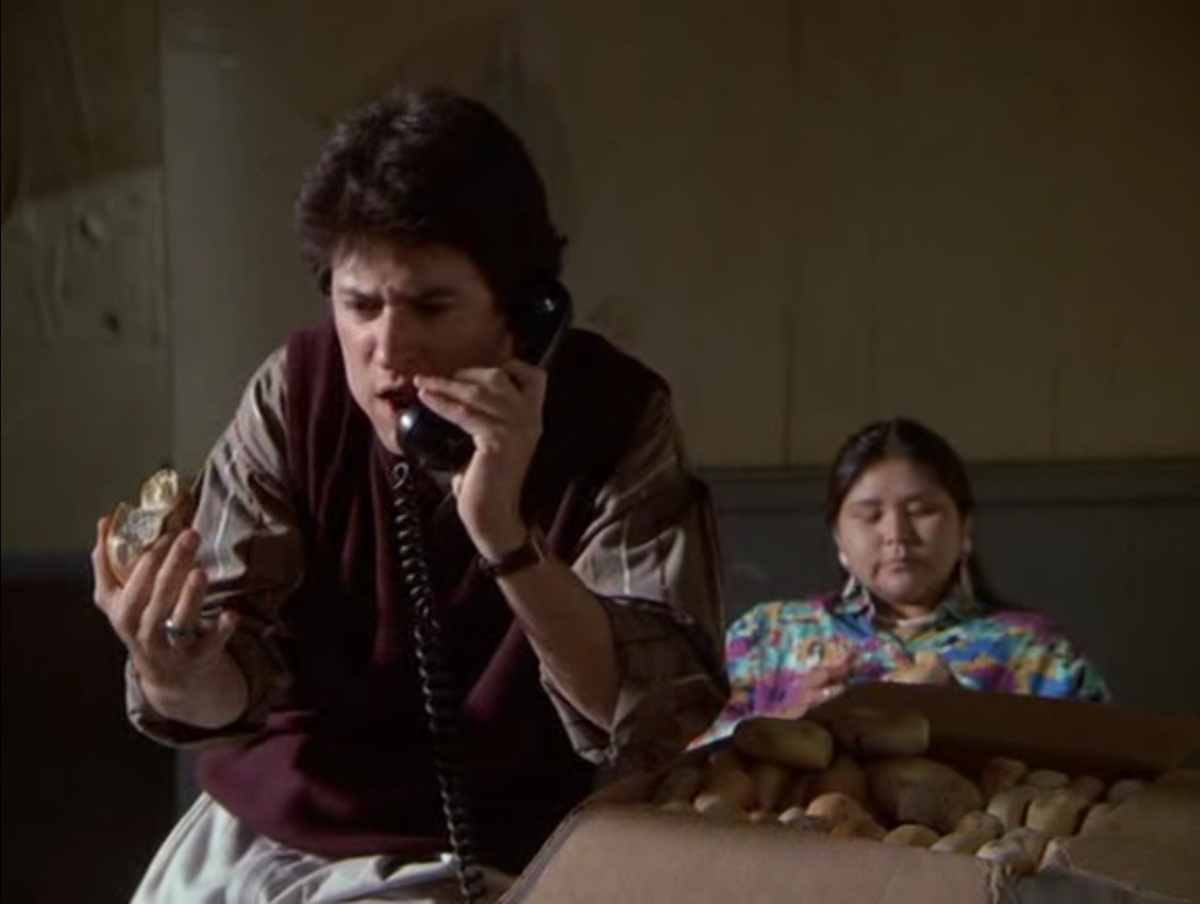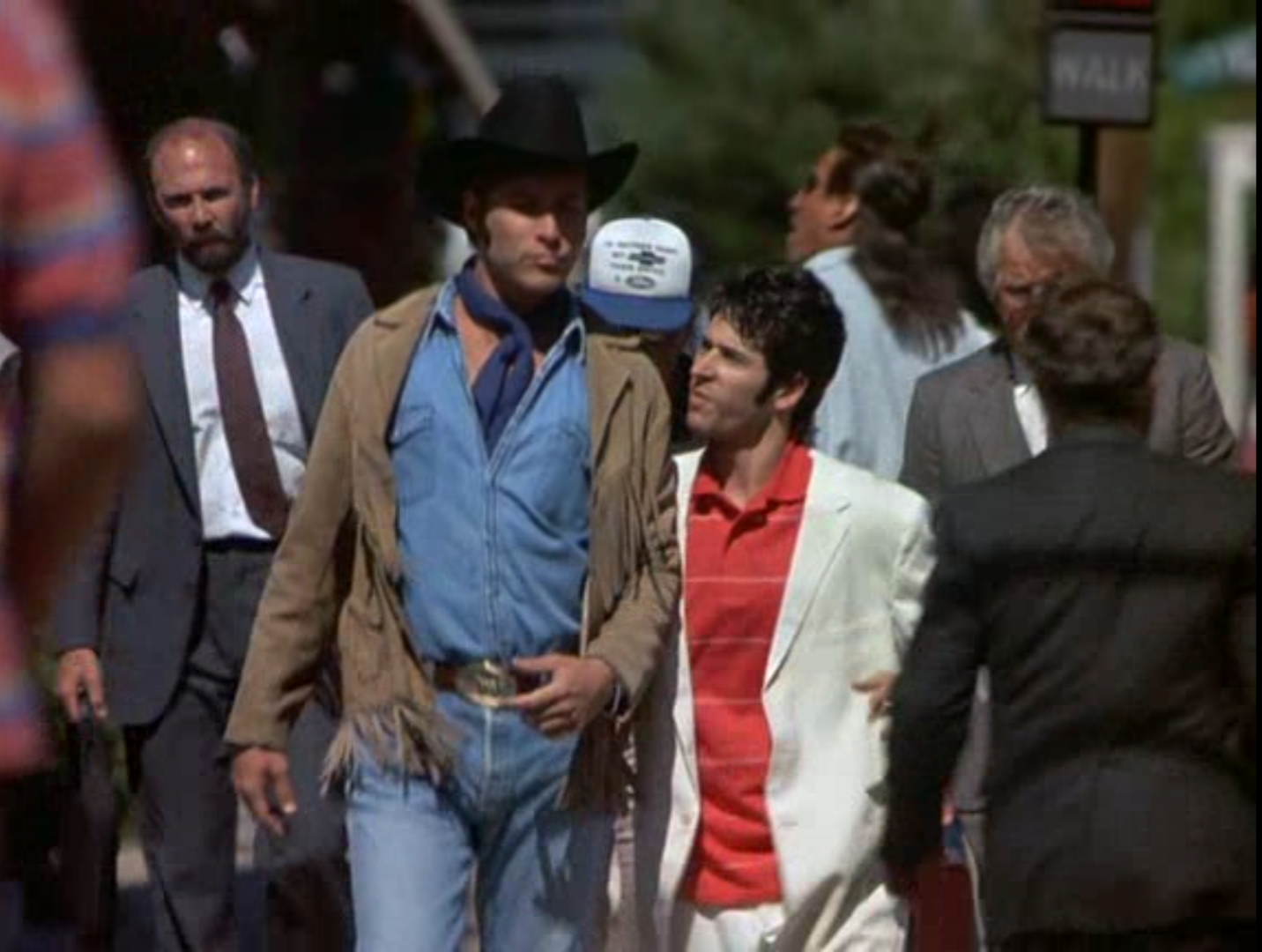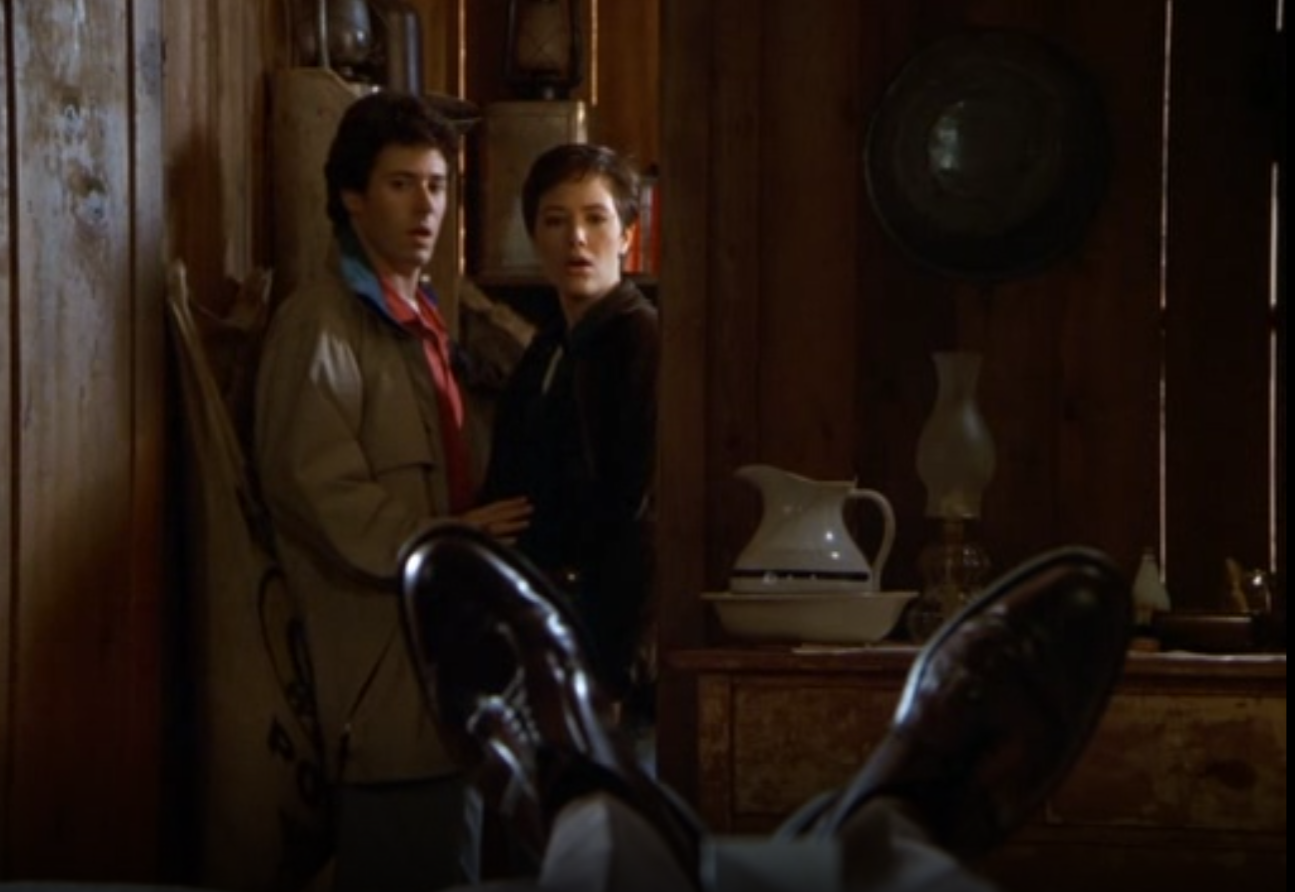When I wrote about Episode 6, I lamented that all the storylines were disconnected—a bunch of people doing separate things. And that left the episode feeling empty and dull. Episode 7 takes the same approach, but winds up with an entirely different result. “A Kodiak Moment” is sweet and soulful — it seems as though the writers were finally getting a true sense of the characters, and allowing that to shine through.
Something about this earnest shot of Ed sums up who he is wholly.
This is obvious, visually: Episode 7 features lots of scenes and shots that give a real sense of who these people are. And it pairs up characters in ways that will remain constant throughout the show.
The stories: Joel and Maggie teach a prepared childbirth class in the tiny, remote town of Boswell. Ed, Holling and Shelly go hunting Jessie the Bear (who once mauled Holling). The death of his brother leaves Maurice facing his own mortality—and asking Chris to be his son, so that he will have an heir.
There is none of the surreal, magical realism that defines some episodes. Even the dialogue has been simplified, relying on strong acting and understated emotion or absurdity rather than drawn-out monologues.
Notable exchanges include Joel asking Marilyn about Boswell:
Joel: “Where's Boswell?”
Marilyn: “Take Highway 90. Go past the saw mill. Go past the sun tan parlor …”
Joel, interrupting: How long?
Mariyln: Six hours, give or take.
The only thing worse than flying is a 12-hour round-trip drive.
Props to the prop department, for proper placement of the prop plane.
Ed and Shelly both accompany Holling on his quest to kill Jessie. Shelly as his determined, fatalistic and loving partner: afraid he will this time be killed by the monster bear. Ed acts as a porter and driver, retelling the story and taking care of equipment.
Shelly: Holling, I know what you’re going to say — it’s dangerous and no place for a woman. But I’m coming with you.
Holling: Shelly, you can’t.
Shelly: I laid up all night thinking and the way I see it, you’re going out there and there’s a chance you wont come back.
Holling: I’ll be back.
Shelly: Maybe. But Jessie almost killed you before. I can’t let you just drive off into the sunset.
Holling: It’s going to be rough.
Shelly: I know that. But this may be one of the last moments of your life, Holling.
Except Shelly and Holling never leave the tent—they spend the days having sex and enjoying camping while Ed reads comic books around the campfire. Yet still, Shelly describes it as “the most exciting thing I’ve ever done.”
Maurice, the man who wants to pave Alaska and fill it with shopping malls, is revealed to have a deeply senstitive and vulnerable side. It is a genuine bit of character development, and one Northern Exposure writers return to from time to time.
“Chris, can you call me ‘Dad?’”
For all his bluster and wealth (and relative power), Maurice is unconsciously afraid of a changing world. We see that in his casual bigotry, but here he is forced to confront it through the loss of a family member—and his ridiculous attempts to replace that role through Chris.
Quintessential Maurice. The American flag and NASA hat are nifty reminders that he stands in for the unconsciousness of the American psyche.
Needless to say, it is not a good fit.
“The Stevensons are quitters. We quit everything. School, work—you name it. The only thing we don’t quit is drinking.” … “You consider yourself grounded!”
But for subtle character development, everyone largely winds up where they started. As is almost always the case — both in Cicely, Alaska, and in real life.
Joel and Maggie have a genuine moment. They deliver a baby together, and it briefly washes away their antagonism. Rebirth of a relationship? Take this exchange, from the flight back from Boswell (planes always make Joel nervous):
Maggie: Something just isn’t right, Fleischman.
Joel, panicking: Where?! What?!
Maggie: No, Fleischman, the plane is fine.
Joel: So what’s wrong?
Maggie: We had a baby today.
Joel: Couldn’t have done it without you, O’Connell. You came here to teach these people how to floss, but you did ok.
Maggie: Did I?
Joel: You were splendid.
The “floss” comment, references the “personal hygeine” class Joel thought he was going to teach in Boswell—only to be confronted by a roomful of pregnant couples. A bit of a softball, but again, the beauty is in the delivery:
Maggie: I don’t know anything about hygeine.
Joel: I’m not going to touch that one.
In the end, Jessie the Bear moves on. Maurice tries to accept his mortality, but fails. Joel and Maggie find a moment of peace.
All’s well that ends well, though the writers leave us with a final scene between Joel and a somber Maurice:
Maurice: The Minnifield empire will not bear fruit in one man’s lifetime.
Joel: Yeah, I hear it didn’t work out with you and Chris. I’m sorry. … Maybe you can start a trust. The Minnifield Foundation. It worked for the Rockefellers. The Gettys.
Maurice: No, I’ve come up with something else.
Joel: Really? What’s that?
Maurice: I’ve decided to live forever.
An excellent Episode 7.

































